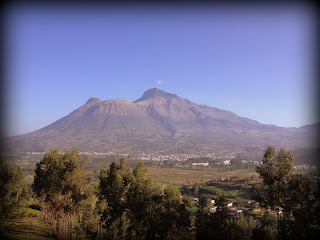Groundhog’s Day
"My poetry was born between the hill and the river, it took its voice from the rain . . . ." – Pablo Neruda
Raining. Under an eave in the pre-dawn dark, all I can hear is water going someplace. In the gutters, there is a metal, uneven gait. When water spills from the drainpipes into stones, there are voices speaking all at once, and I imagine commuters at the end of a day pouring from a city bus.
Have you ever heard voices in rushing water? It's as if the ocean, a river, even a rivulet of quick rain is whispering at the edge of your ear, but you can't quite understand what is being said. I suppose as humans we hear the world around us as human.
Rain dripping from redwood needles—a constant tapping, tapping, tapping into mud and old leaves—sounds impatient, tense, anxious to be elsewhere. Then suddenly the tapping turns to music, becomes a long familiar rhythm, that second rhythm a child hears (after the sound of her mother's heartbeat), a comforting syncopation at the forest's edge. What changed the tone? It was only my desire to hear music rather than impatience on my 50th birthday.
When I think of where all that water has been and where it is going—all over and everywhere—I feel at home. To be caught in movement, to feel moved, is for me oddly grounding. Like many, I'm a mutt borne of mutts on the move. Yet, ironically, I arrived in this world on Groundhog's Day—named for a big rodent, a type of marmot, known for its tenacity to stay put (just ask any neighboring farmer or gardener).

Groundhogs Photo: www.hoghaven.com
Given a life of frequent moving, the closest I can come to a sense of heritage is being part of the Marmot Clan. We find beauty in darkness though seek the play of sun and shadows. We get sleepy in cold weather but are active dreamers. We will scavenge fallen pears and peaches. We might pluck others' petunias. We can be soft and fierce. We always keep our secrets. I lived with several generations of groundhogs during my 7 years in Pennsylvania. Now to visit the closest 'relatives,' I'd need to travel to the Sierra, to the shy Yellow-Bellied Marmot who prefers granite and alpine views.
Back in my den, I write with pencil in a notebook. My laptop glows at my elbow, waiting to be fed my words, when my brother emails to wish me a happy birthday and to say that Lila died this morning. Lila is, was, his wife's grandmother, but more importantly to me, a great friend to my widowed father in the last several months of his life. The same generation, they both loved old musicals, cherishing the grace of Fred Astaire, the agility of Gene Kelly. They didn't mind a little dust settling around them. Dust is just time made visible. They dressed up for weekly meals of Mexican food (not easily found in the Amish country of Pennsylvania). They shared stories of happy pasts to make up for their illness-plagued presents.
When my father was dying, lingering those last few days in the hospital, it seemed that he couldn't let go of consciousness. Then Lila arrived. They didn't speak much, but sat together all afternoon, just being in each others' presence. After she left, he fell into a deep sleep, waking only once that night, sitting up a bit dazed in the white sheets to announce, "I have to go someplace." It was another day and night before his body followed him.
As if I didn't have enough reason to celebrate another year, another day, on the planet—Lila reminds me that I have everything, right here, right now. It's okay to linger in this moment. I try to remember Lila's voice, the way her words glided upward, but I can't. It's raining harder. There is only the sound of falling water. "Thank you," I say out loud, glad to hear my own voice.
.jpg)


Comments
Post a Comment